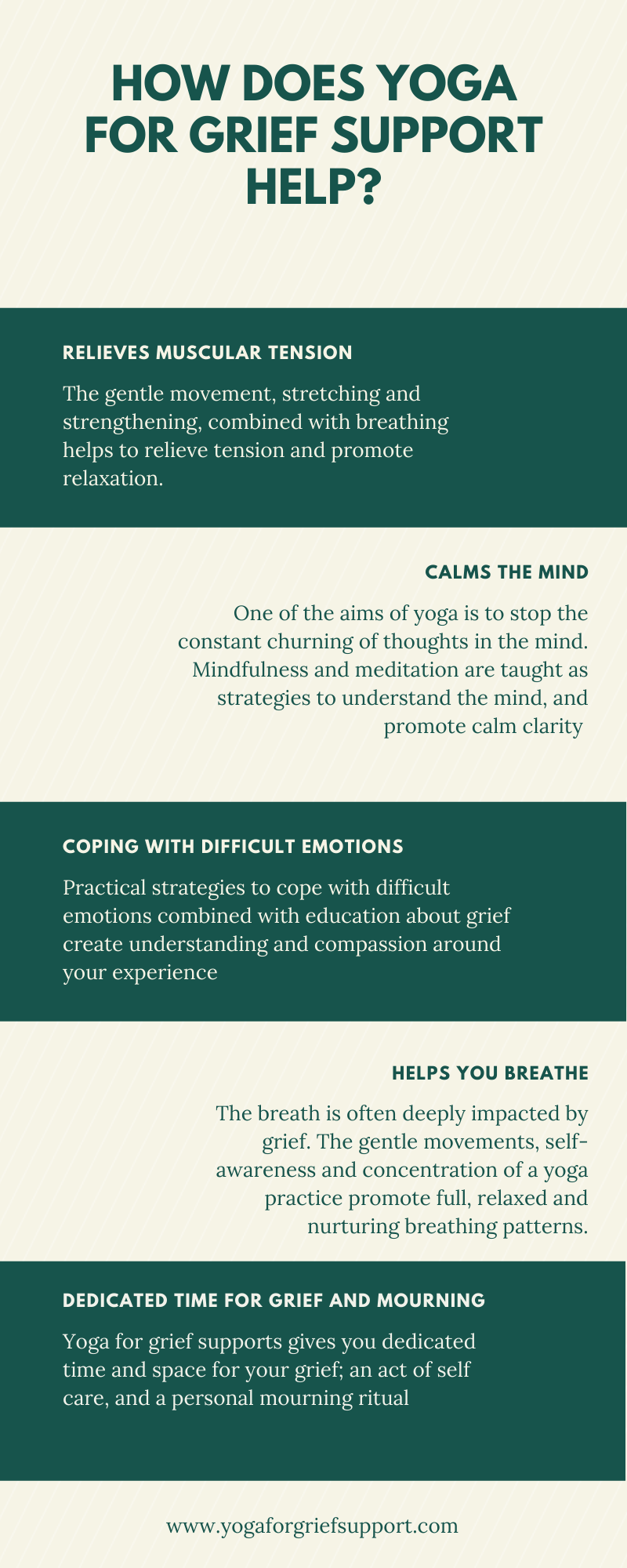|
First of all, it's important to know all the ways grief affects you... Then, we can look at all the ways yoga is supportive...and there are many... How has it helped you? Let me know in the comments below.
"Do not be daunted by the enormity of the world's grief. The events in our world right now (climate change and losses due to fires and floods, the Covid pandemic and the uprising against discrimination and oppression) have brought grief, loss and trauma to the forefront of our collective experience, albeit in different ways. I feel like we are all the care-givers of a grieving world. And it is SO HEAVY. With all this going on, I’ve been wondering: How can I care for the people who need it? How will we cope with ALL of this? What can I do? I feel frantic to do something - get on zoom, get on Facebook or Instagram live, plan something to help...on and on and on...and simultaneously I think, "I don't know what to do." This tension between the two states is what this post is about. The quote that I opened this newsletter with has been a guiding one for me: "Do not be daunted by the enormity of the world's grief. Do justly now, love mercy now, walk humbly now. You are not obligated to complete the work, but neither are you free to abandon it.” I will not abandon the work that needs to be done in the realm of grief support. And yet, another guiding mantra I have is,“You are helpful in your helplessness.” At first glance, it can seem impossible to balance these two things: Helplessness, but not abandoning the grief I witness. I believe, however, that these two states are not incompatible with each other. Rather, there is a creative tension between them. They need each other. Especially now. In this context, being helpless doesn’t mean doing nothing. It means understanding that there is nothing that you can do to fix or take away someone’s pain. Recognizing helplessness creates connection and support because the griever is less alone when there is someone else willing to sit in the darkness with them. This, actually, is really hard for us helpers. Sometimes, the more we explore someone’s pain with them, the harder it is to remain "helpless." I see this in myself at times in my personal and professional life, when I’m witnessing someone else's grief or uncertainty. I want to jump in to make it all better. I want to take away the pain. I want to spew solutions, and tell them “everything is going to be OK.” {In moments like this, when you notice yourself placating, as yourself, "What am I trying to make more comfortable?" So often it's OUR OWN discomfort we are trying to appease, not the person we are supporting.} Although this protective reaction is well meaning, it's not helpful. I have to mentally stop myself. I remind myself that there is absolutely nothing that I can say that will take the person’s pain away. Simply listening, and upholding the experience of the other person is the most genuine, compassionate and helpful response. Listen to their story, listen to their hurt. Listen to their fears. Don't try to change it for them. Stay humble. Henri Nouwen captures this so vividly in this quote: “Healing means, first of all, the creation of an empty but friendly space where those who suffer can tell their story to someone who can listen with real attention. As healers we have to receive the story of our fellow human beings with a compassionate heart, a heart that does not judge or condemn but recognizes how the stranger’s story connects with our own. We have to offer safe boundaries within which the often painful past can be revealed and the search for a new life can find a start. Our most important question as healers is not, what to say or to do? But, how to develop enough inner space where the story can be received? Healing is the humble but also very demanding task of creating and offering a friendly empty space where strangers can reflect on their pain and suffering without fear, and find the confidence that makes them look for new ways right in the center of their confusion.” As a grief care-giver, you create the conditions for the griever to find their own way through their pain. This is how, as the quote says, "you are not obligated to complete the work." Everyone has to integrate their own loss themselves... Still, we cannot abandon grief, grievers, or ourselves. In our society, how we deal with grief is a social justice issues. Perhaps it is more accurate to say how we don’t deal with grief is a social justice issue. We must commit to contributing to social change and justice for the grieving and the bereaved. We must remain open to witness and receive the discomfort within ourselves, and in our societies. We must do the personal work we need to be able to be in genuine connection and compassionate presence with others. We cannot abandon grief. If we can support grief we can empower grievers, and with empowerment, people can integrate their losses in meaningful ways. We can be helpful in our helplessness. |
AuthorSandy Ayre Categories
All
Archives
December 2022
|
Classes
|
Helpful Info
|
|




 RSS Feed
RSS Feed
